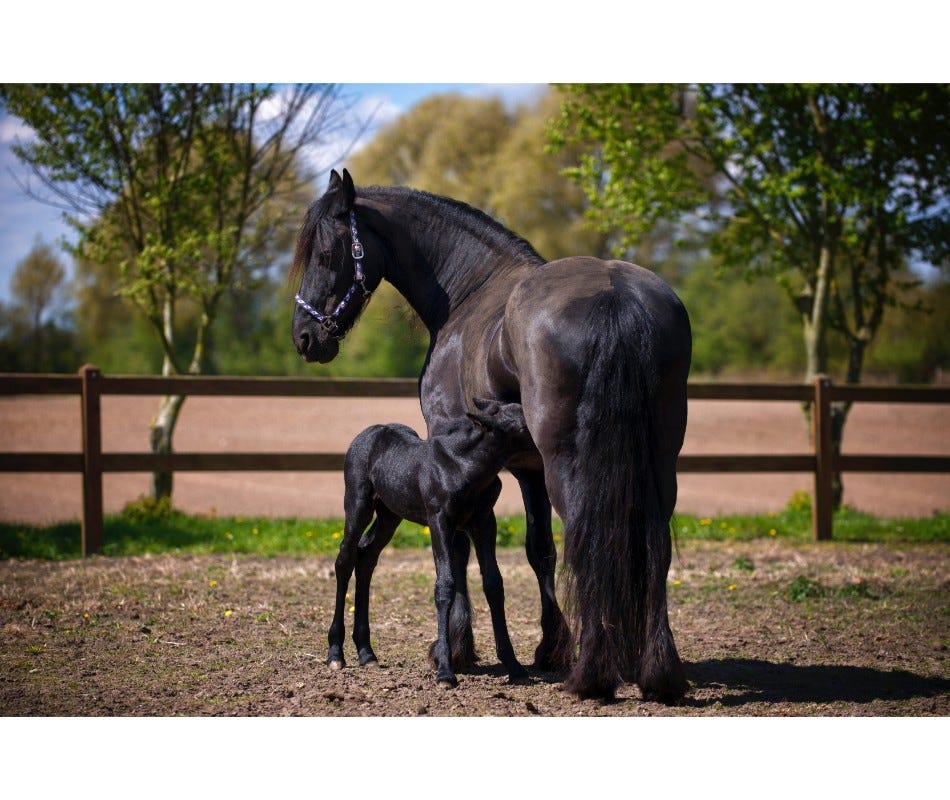We use cookies to make your experience better. To comply with the new e-Privacy directive, we need to ask for your consent to set the cookies. Learn more
Foal Worming Made Safe and Easy with AbFen
Young foals are more vulnerable to parasite infestations compared to adult horses.
Young foals are exposed to parasites at a very early age. They can acquire different parasites just by drinking their mother’s milk. Often the contamination also happens when they come in contact with manure. Strongyloides species are equine parasites commonly passed from mare to foal. Therefore deworming the mare after foaling can be an effective strategy to eliminate these parasites. Protect your foal against these enemies.
Different types of worms
There are various species of intestinal worms that can affect foals but the most important equine parasites to watch out for are the ascarids, commonly known as roundworms. The foal's immune system is undeveloped up to 18months therefore at risk of attack of ascarids. Problems associated with ascarid infestation include depression, stunted growth, respiratory disease, constipation, diarrhea, and a potential occurrence of fatal colic.

The immature roundworm larvae can migrate through the lungs and liver of foals. When they grow in numbers and mature into adult roundworms, they can bring serious problems to the foals’ small intestines, such as impaction. However, when the horse matures and reaches second year, its immune system is now heightened and develops a better response to ascarid infestations; the threat is no longer that massive at this point.
Cycle of Parasites
The lifecycle of ascarids takes 10-12 weeks to complete. The problem starts when eggs are ingested; ascarid eggs are passed through feces and contamination starts when manure is scattered around the pastures. To keep your foals in a healthy condition, it is best to have a regular parasite management program that restricts the growth of ascarid population as much as possible.
Using Fenbendazole can get rid the ascarid problems in foals from 6-8 weeks of age. It is proven to be very effective against roundworms and is an extremely safe deworming agent to be used on foals. A strategic deworming program may involve other classes of dewormers to avoid drug resistance , it is best to consult your veterinarian which dewormers are best. Here are some tips to make sure that your deworming program is effectively working.
The efficacy of your wormer can be evaluated by performing fecal exams twice a year. The result should also be discussed with your veterinarian.
Foal Worming Made Safe
A weight tape can be used to estimate the weight of your foal and to make sure that you are delivering the right dosage based on the foal’s weight.
Using fenbendazole for horses can help a lot in eliminating the problem but through prevention, you can do a whole lot more. Clean pastures regularly by picking up manure more frequently. If you intend to make manure as pasture fertilizers, subject it to high temperatures to make sure ascarid eggs are killed.
Older foals need to be fed above the ground with the use of a hay feeder. This is to reduce the chance of ingesting ascarid eggs from direct feeding off the ground.
Fenbendazole for horses, is a safe dewormer for your foal that should be part of your foal care program. Always consult your veterinarian for the best deworming schedule based on the conditions of your area.








Validate your login